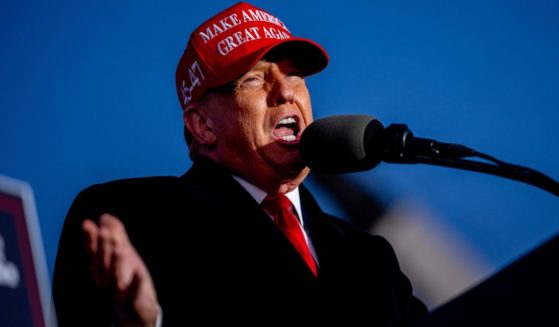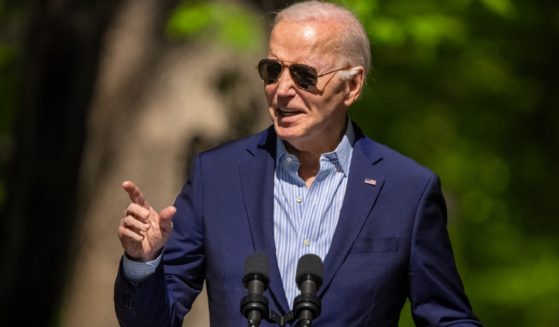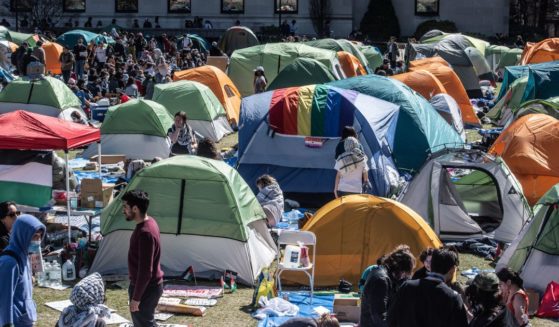Job-Killing Minimum Wage Proposals, Led by Democrats, Sweep Across the US
An increase in the federal minimum wage sits at the very top of the current Democratic agenda.
Since taking control of both houses of Congress and the presidency in the 2020 election, Democrats have doubled down on their efforts to push through a federal minimum wage increase. Various state and local governments across the country have followed suit, often with more successful results.
While such proposals might be popular with a large swath of voters, the end result of such policies could be devastating for low-skilled workers across the country, according to multiple economists.
Initially, Democrats attempted to include a minimum wage increase in the coronavirus relief bill passed in March.
Although that effort was squashed, Democrats haven’t given up on the federal policy. Senate Majority Leader Chuck Schumer of New York voiced as much in a statement following the failed effort, saying, “We are not going to give up the fight to raise the minimum wage to $15,” according to a March 1 article from Vox.
A March 25 report from Lawyer Monthly shows this push has extended to state and local governments as well.
As of Jan. 1, the report found, 20 states had implemented a minimum wage increase.
Another four states — Virginia, Nevada, Oregon, Connecticut — and the District of Columbia are expected to increase their mandatory minimum wages later in the year.
In at least 12 of the remaining 26 states — Delaware, Wyoming, Louisiana, Florida, Texas, Pennsylvania, North Dakota, North Carolina, Hawaii, Nebraska, Tennessee and Kansas — bills that would implement minimum wage increases have been introduced this year.
Also, 22 counties and cities raised their minimum wages on Jan. 1, and 13 more are expected to follow suit this year, Lawyer Monthly reported.
According to Mark J. Perry — a professor of finance and economics and scholar at the American Enterprise Institute — these calls for wage increases are “likely due to the fact that it’s been almost 12 years since the federal minimum wage was increased to $7.25.”
While Perry said setting minimum wages at the local level makes much more sense than doing so federally, given that local and state governments have “a better understanding of local conditions,” he also believes such policies could come with serious consequences.
Increasing the minimum wage — or, as Perry puts it, “political wage-setting” — disadvantages most the very people Democrats claim to be helping — “unskilled, low-skilled, and limited-experience workers,” he said.
In discussions of the labor market, what often goes overlooked is the fact that “low-skilled workers compete against high-skilled or more skilled, and more experienced workers,” Perry said.
“[E]mployees compete against other employees for jobs and higher wages, not against employers. Employers compete against other employers, not workers, to hire the best workers,” he told The Western Journal via email Thursday.
“Given the reality that low-skilled workers compete against high-skilled workers, an increase in the federal minimum wage say to $15 an hour (a 107% increase from the current hourly minimum wage of $7.25) would make higher-skilled, more productive, more experienced workers more attractive to employers and unskilled workers less attractive,” Perry said.
One of the biggest advantages low-skilled workers have over high-skilled workers is their ability to offer work at a lower wage.
With an increase in the government-mandated minimum wage, that advantage is stripped away.
Furthermore, Perry pointed out, unskilled workers, unlike experienced workers, tend to “burden” employers with the costs of giving them on-the-job training.
While many employers are willing to take on these costs, they will do so only as long as the wage they are paying these workers reflects their lack of work experience.
Once those wages hit a certain level, it is more cost-effective for employers to pay higher wages for more skilled, experienced workers who will work more efficiently from the get-go.
Perry offered an example to illustrate his point.
“Assume an employer could hire 2 unskilled workers for $7.25 per hour or one skilled worker for $15 an hour for the same value and productivity to the employer. Given that choice, the employer would benefit from hiring two unskilled workers for a total of $14.50 an hour compared to $15 an hour for the skilled employee when either option provides the employer with the same value and benefits,” Perry told The Western Journal.
“But if the minimum wage is raised to $15 an hour, the employer would much rather hire skilled, experienced workers at $15 an hour than unskilled workers.”
Democrats and left-wing activists often propose these sorts of policies as a means for uplifting poor, minority communities.
Such legislation would accomplish exactly the opposite.
“Minimum wage increases are especially harmful to the most disadvantaged, most at-risk, and most marginalized workers, and often those workers are African Americans and minorities,” Perry said.
“Hiking the minimum wage often means those disadvantaged workers become even more disadvantaged and are less likely to find a job,” he said. “The best way to help all unskilled workers, including minorities, is to not artificially increase wages by political mandate but to let the market forces determine wages.
“The real minimum wage is always zero because that is what an unskilled worker makes if he or she loses a job or can’t find a job. Unskilled workers need more skills and more work experience to increase their value to employers, and artificially raising the minimum wage makes it less likely that the most vulnerable workers, including minorities, will find and keep jobs that make their futures more productive, prosperous, and successful.”
$11/hr or $12/hr ain’t it. We need $15. No compromises #Fightfor15 #RaiseTheWage pic.twitter.com/zegnRvuJsY
— Fight For 15 (@fightfor15) April 18, 2021
Speaking with The Western Journal in March, two other economists — Walter E. Block and Robert Wenzel — agreed with Perry’s assessment.
According to Block, many of today’s disparities between blacks and whites when it comes to unemployment rates were created by “the advent of the minimum wage law in 1937.”
That has followed through to today, Block explained, with the unemployment rate of black teens being quadruple that of “white middle agers” specifically because “more of the latter than the former have productivity levels higher than the level stipulated by this pernicious law.”
Wenzel offered a similar assessment.
“A high minimum wage has always been an attack on low-skilled workers. It prevents them from getting that all-important first job because the high minimum wage is likely to be higher than what they produce in revenue for an employer. This means they can’t get in the door to develop their skills,” he told The Journal.
“Because of the poor public school education in the inner cities, these low-skilled workers are often black youth,” Wenzel said. “It is no wonder that the unemployment rate in the United States is the highest for black teenagers.
“The minimum wage is destroying, the opportunity for them to get an early jump in the work environment.”
Truth and Accuracy
We are committed to truth and accuracy in all of our journalism. Read our editorial standards.












